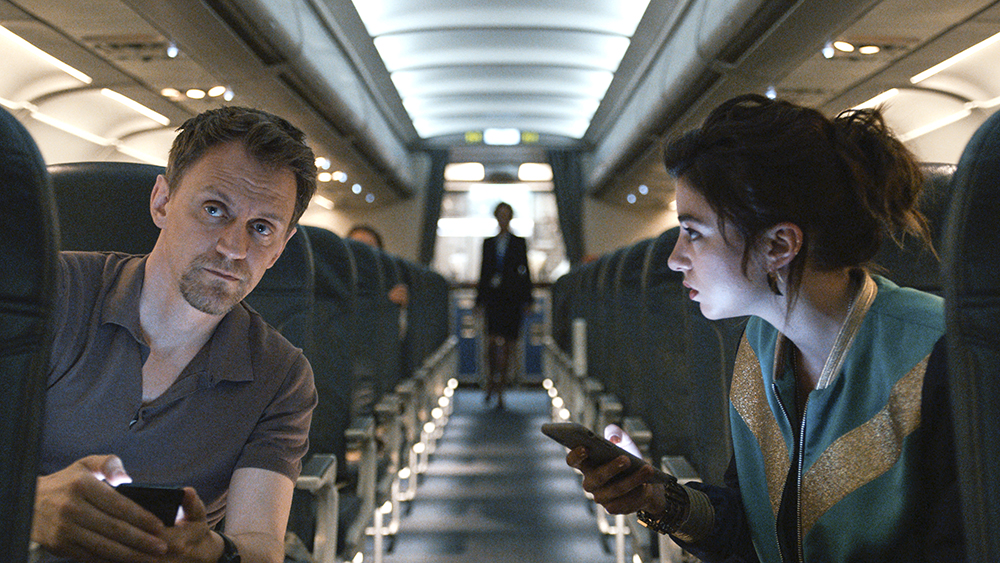As Lockdowns Lift, European Union Asked to Enforce Level Playing Field on Streaming Giants
By Nick Vivarelli
LOS ANGELES (Variety.com) – The survival of Europe’s film and TV producers amid what is perceived as a growing imbalance between them and U.S. streaming giants was the overarching topic in a Rome MIA market panel on the main challenges faced by European indies as lockdown restrictions begins to lift across the European Union (E.U.).
Platforms such as Netflix, Disney Plus and Amazon are considered “the big winners” amid the coronavirus crisis, as Carole Scotta, founder and head of France’s prominent producer-distributor Haut et Court, put it during the Variety-moderated session.
Aside from immediate concerns such as safety protocols and insurance coverage necessary to start shooting again, Europe’s indies are trying to think ahead about a structural plan that will keep them afloat.
Spanish producer-director Alvaro Longoria, president of the European Producers Club, revealed that the European Commissioner for the internal market, Thierry Breton, has created an informal task force comprising all film and TV industry segments “in order to understand what the major immediate threats to the ecosystem are, and what measures can be implemented…in order to alleviate the impact of the crisis.”
“The European ecosystem is made of a lot of small and medium-sized companies…and local players that will suffer greatly…and the main goal of this task force is to prevent that devastation,” he said.
Key issues on this informal task force’s agenda are medium and long-term financing so people in the industry “can survive the next few months;” measures to “sort the insurance problem” that local governments can implement locally; and “adapting the playing field so everybody is competing on the same basis,” he said.
On this point, Longoria said an effort is underway to set a new legislative framework so that “global streamers participate in some way or another” in the pan-European film and TV industry recovery effort besides just pumping money into European productions that play on their platforms.
“To me, the key issue really is to push the platforms, which are the big winners amid this crisis — and some of them are richer than some of our countries — to actually put money in the system,” said Scotta.
“The bigger picture would be (to) push them to invest money in the general system,” added Scotta, in a way that can also “help theaters; and can help distributors.” One measure on the table is a “digital tax” given the number of complaints from European broadcasters that global platforms are not subject to the same taxes they pay, said Longoria.
Meanwhile, the soft money for production that Europe is known for does not appear to have dried up, but securing it appears to have become more difficult.
“The German (soft money) funds were very quick in coming together and saying, ‘Okay, we have to make a rescue program,’” said Jonas Dornbach, managing director of Germany’s Komplizen Film. “They put €15 million ($16 million) in it and said, ‘For every shoot that was stopped by coronavirus, we will pay and try to take on all the expenditures,” he added.
However, the German funds were also straightforward in insisting another solution would be necessary going forward, noting they couldn’t cover productions shooting without insurance.
At the moment, some shoots are starting in Germany but they are backed by either broadcasters or platforms. These include Netflix shows starting shoots thanks to the streamers’ own insurance, noted Dormbach, who lamented: “It can’t be a survival of the fittest, where only the ones with the most money, who are the strongest, will survive.” Other panelists noted that Netflix has a big edge at the moment because COVID-19 insurance is allegedly not an issue for them.
Marta Donzelli, co-chief of Italy’s Vivo Film, also pointed out that “with TV series, the platform or the broadcaster are the main owners, so they are more willing to take part in the COVID-19 risk.” With film, however, the primary rights holder in Europe is the independent producer who “of course doesn’t have broad enough shoulders to sustain that risk.”
“In Italy, we are trying to come to a model where somehow everybody contributes to the risk and shares the risk,” Donzelli said. Local legislators are trying “to involve big distributors, broadcasters, players and public funds” within a collective effort.
The Italian culture ministry is also thinking of raising local tax credits for production from 30-40% of expenses, “which would give us the possibility of absorbing costs directly generated by COVID-19 protocols,” Donzelli noted.
Another key point the Italian industry is lobbying for is that “tax credits and all public funds should take part of the (coronavirus) risk” by lifting the requirement that these funds are triggered only upon delivery of the completed product. In other words, if a production collapses due to coronavirus, it should still be eligible for tax credits and other soft money.
Gianandrea Pecorelli, head of Italy’s Banijay-backed Aurora TV lamented that broadcasters such as Italian pubcaster Rai would “like to leave all (coronavirus) liability to the producers.”
Ultimately, the big hope is that the European Commission will step in with a New Deal of sorts. Dornbach said, “What this crisis taught us is: we all lost our boat in the ocean; our second house in the mountains; our Rolex; The big SUV. I have none of those.”
Dornbach added: “But what we really saw is — (in addition to) Netflix stock skyrocketting — culture is really adding to our life” and “at a European level, it should be given value.”

